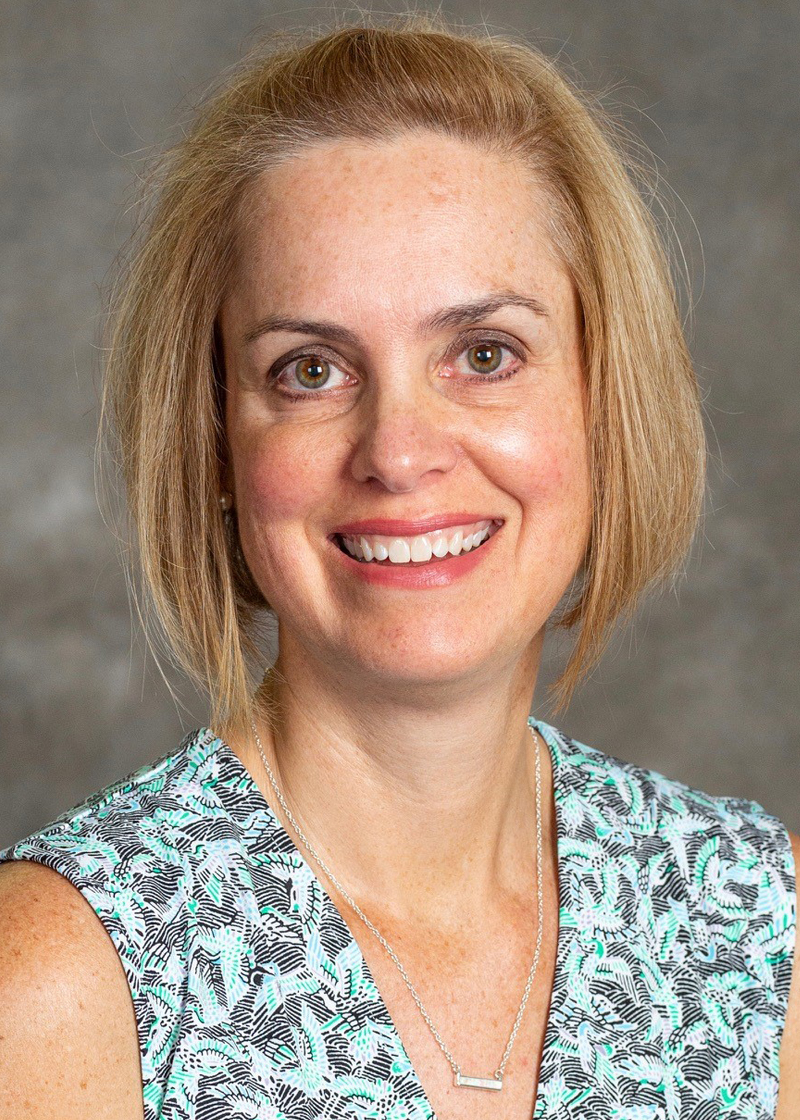School of Nursing Advanced Practice Nursing Specialty Expands Essential Services to Those with HIV
The Duke University School of Nursing HIV Specialty, allows advanced practice providers to keep serving their communities while completing their studies.

This December 1, the world observes its 35th AIDS Day, with this year’s theme, “Putting Ourselves to the Test: Achieving Equity to End HIV”, highlighting the pronounced inequities in HIV prevention and treatment. The Duke University School of Nursing (DUSON) HIV Specialty, a distance-learning program for nurse practitioners, has been answering that call for the past eight years, particularly addressing those services defined as essential since HIV has transitioned from a fatal disease to a manageable chronic illness.
“As life expectancy increases among those living with HIV, clinicians in a primary care setting must be equipped to address their needs,” said Kara McGee, DMSc PA-C, AAHIVS, associate professor and lead faculty of DUSON’s HIV specialty program. “One thing we teach, in addition to the medical management of HIV, is the psychosocial perspective and understanding the impact of HIV on mental health. For example, depression due to isolation, experiences of discrimination or stigmatization, even by family and friends, can lead a person living with HIV to have trouble adhering to their treatment regimen. Equipping NPs to address the full spectrum of needs of people living with HIV is essential to assuring that they live long, healthy and happy lives.”
With a looming shortage of HIV-specific care providers, since professionals from the genesis of the epidemic in the 1980s and 90s had begun to retire, the United States Department of Health and Human Services put out a call in 2013 for proposals. The proposal request was to develop HIV specialty programs in order to increase the number of clinicians trained to care for people living with HIV. Of five HIV specialty programs funded by the Health Resources and Services Administration (HRSA) grants, DUSON’s alone has achieved sustainability, and its HIV Specialty is now one of two programs of its kind for nurse practitioners (NPs) in the country.
“One of the reasons I love teaching in this program is the intense personal interest participants have,” said McGee, who handles curriculum, instruction and student matriculation. “Some have family members with HIV, others might have had a bedside patient with HIV early in their careers, and others are interested in HIV prevention and public health in general. This program gives them an opportunity to pursue those interests and have a greater stake in addressing the needs of people living with HIV.”
The program specifically opens opportunities in clinical care, overseas service, and research. One graduate has started an HIV clinic in Chicago, another is pursuing a PhD at John Hopkins University researching HIV prevention among Black women in the South, and still others have specialized in caring for adolescents living with and at risk for HIV. Many graduates work in primary care settings and specifically at clinics participating in the Ryan White Program, a federally funded service for people living with HIV, many of whom are low-income, male, and people of color.
“Our groups are small,” said McGee, who has seen 50 graduate since 2014. “This allows me to get to know the students well and make sure that I’m meeting their goals and objectives. If someone is interested in women with HIV, for example, I can make sure they receive the necessary additional resources and materials to develop the knowledge and skills to care for women living with HIV.”
Enrollment to the specialty is open not only to DUSON students in the Master of Science in Nursing and Doctor of Nursing Practice programs but all practicing NPs who have an interest in learning how to manage patients living with HIV. Students complete the course work in their own time online, attend a two-day intensive learning session at DUSON, and spend 168 hours with a supervising clinician in an HIV-specific setting. The distance program allows practicing NPs to keep serving their communities while completing their studies.
“There are still nearly 35,000 new diagnoses of HIV infection in the US each year, with a disproportionate percentage of those being in the South and among people of color,” said McGee. “The goal is zero new HIV infections, but until that happens, we will need clinicians to care for and meet the needs of people living with HIV.”
Approximately 38.4 million [33.9–43.8 million] people around the world were living with HIV at the end of 2021 and about 1.2 million of those were in the United States, according to World Health Organization and US government statistics, respectively.
